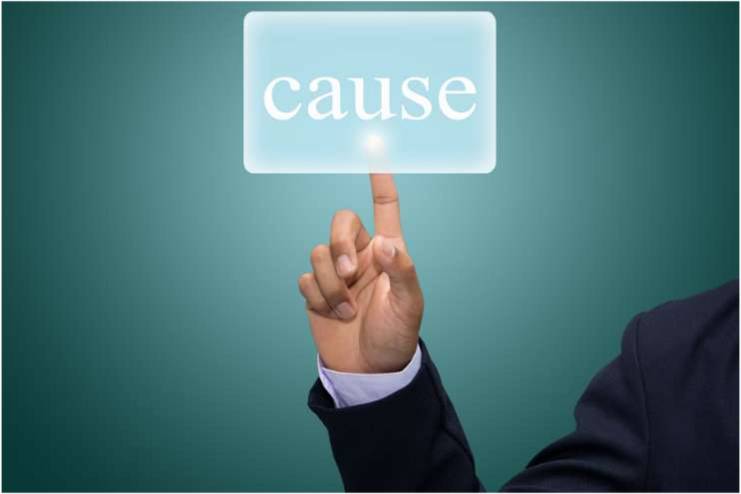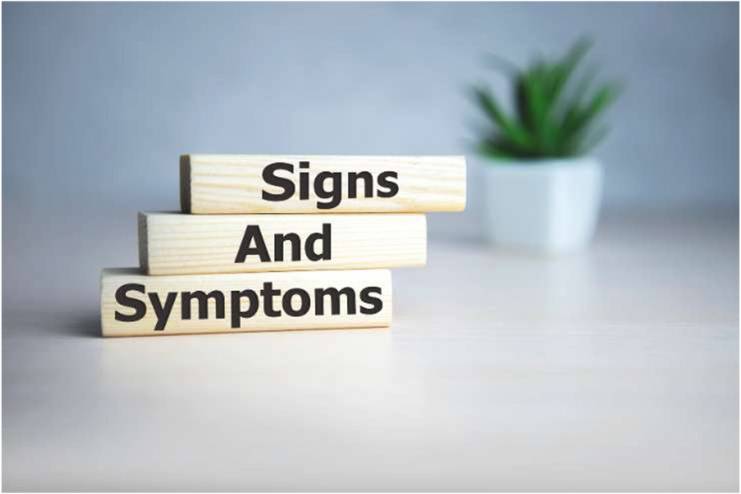Affiliate Disclaimer
Some links in this article are affiliate links. We may earn a small commission if you make a purchase through these links, at no extra cost to you. We only recommend products we find useful to our readersYour body experiences dehydration when it loses or uses more fluid than it takes in. This imbalance impacts vital functions since your body isn’t getting enough water and other fluids to function normally. You will become dehydrated if you don’t replenish lost fluids.
Dehydration can affect everyone, but it poses a risk to older adults and small children, particularly. People frequently underestimate dehydration, but if left untreated, it can cause weariness, lightheadedness, disorientation, and more severe effects.
Dehydration presents a unique problem for adults since it might be difficult to notice because it can appear as a typical symptom. Infections, chronic illnesses, and even some drugs can cause fluid loss, which affects blood pressure, kidney function, and cellular functions.
Maintaining optimum health requires identifying the symptoms of dehydration and treating its underlying causes. Adults aware of the diseases that cause dehydration can take preventative measures to keep their bodies balanced, invigorated, and resistant to fluid loss.
Common Diseases That Can Cause Dehydration

Many common ailments might have hidden consequences, such as dehydration because they affect the body’s ability to retain fluids. We’ll see how dehydration can result from some illnesses:
Diabetes: Since high blood sugar levels force the kidneys to work harder to filter out extra glucose, Type 1 and Type 2 diabetes contribute to dehydration. As a result, the body produces more urine and loses a substantial amount of fluid. This fluid imbalance is made worse by untreated or inadequately controlled diabetes.
Fever: A fever activates the body’s temperature-regulating systems, causing increased perspiration and fluid loss. Generally speaking, the higher the fever, the greater the risk of dehydration. The situation worsens if you have diarrhea, vomiting, and a fever.
Kidney Problems: Your kidneys are bean-shaped organs that filter blood to maintain healthy nutrients in your body and eliminate waste and extra fluid through urine. However, kidney-related illness disrupts the flow of these essential duties. The body finds it more difficult to maintain fluid balance when kidney function deteriorates, increasing the risk of dehydration.
Eating Disorders: Due to a variety of unhealthy eating-related behaviors, eating disorders like bulimia nervosa and anorexia nervosa might raise the risk of dehydration. Using laxatives and restricting foods and beverages high in fluids are some examples of these practices. Some people avoid water to control their body size because they are anxious about gaining too much water weight.
Celiac Disease: Only over 30% of patients are correctly diagnosed, despite the fact that it is thought to impact 1 in 100 people globally. Celiac disease is an autoimmune condition that can harm the liver when a person with it eats gluten. Children with this illness often have diarrhea, which dehydrates them. Due to severe vitamin and mineral deficiencies, particularly an electrolyte imbalance, the condition causes dehydration in adults.
Gastrointestinal Disorders: The body quickly loses fluids and electrolytes due to illnesses, including food poisoning, diarrhea, and vomiting. Because these gastrointestinal problems disrupt normal fluid balance, dehydration is a common consequence.
Symptoms and Signs of Dehydration

Dehydration frequently appears in subtle ways that are easy to ignore rather than making a big, dramatic statement. However, to avoid more significant health problems, it is essential to recognize these early indications. Typical indicators of dehydration include:
Dry Mouth and Thirst: A dry, sticky sensation in your mouth is one of the first signs that your body is dehydrated. Dehydration causes the body to lose enough liquid to support healthy teeth, which results in a chronic thirst.
Headache: Although the precise cause is unknown, dehydration can cause headaches. Dehydration headaches are more common in certain people than in others.
Fatigue: The body finds it difficult to sustain energy levels when dehydration sets in. Consequently, fatigue, lethargy, and a general lack of vitality are prevalent. You may still feel abnormally exhausted even after a full night’s sleep.
Dizziness: Dehydration lowers blood pressure by decreasing blood volume. It can cause dizziness or lightheadedness by preventing enough blood flow to the brain.
Reduced frequency of urination: Fluid departs the body through urination. When you are dehydrated, there is significantly less fluid to expel. Dehydration may also result in the kidneys retaining more fluid, which lowers urine production.
Dark urine: When you are well hydrated, your urine has more water and is lighter in color. However, it gets darker and more concentrated when you are dehydrated.
Keep an eye out for these early indicators, as they provide essential hints for preserving the fluid balance in your body before dehydration negatively impacts your health.
Prevention Strategies: Safeguarding Against Dehydration

Avoiding dehydration is a deliberate approach that includes balancing electrolytes, maintaining fluid levels, and, in certain situations, seeking medical attention. It’s not just about drinking water when you’re thirsty. Here’s how to avoid becoming dehydrated:
Fluid Intake: Consistent, conscious daily fluid intake is the cornerstone of hydration. The easiest choice is water, but other liquids, such as herbal teas, broths, and fruits high in water content, can also be beneficial. Please pay attention to your body’s demands and drink often, especially when it’s hot outside or you’re working hard and losing fluids.
Electrolyte Balance: Maintaining the proper ratio of electrolytes like sodium, potassium, and magnesium is as essential to hydration as drinking enough water. These minerals are necessary for nerve transmission, fluid balance, and healthy muscular contraction. Sports drinks, coconut water, or even homemade remedies like water with a bit of salt can restore lost electrolytes.
Limit coffee, sweets, and alcohol: Alcohol, coffee, and sugar are a few items that might cause dehydration. Pay attention to how much you’re eating, particularly on hot days. Avoid caffeinated beverages and energy drinks as well.
Medical Care: Professional medical care may be required for the more vulnerable, such as those with infections or chronic illnesses. In extreme situations, physicians could administer IV fluids to rapidly restore electrolyte balance and hydration, guaranteeing optimal bodily functions.
Implementing these preventative techniques can help you avoid the risks of dehydration and maintain better overall well-being.
Complications: The Long-Term Effects of Unmanaged Dehydration

The effects of untreated dehydration go much beyond simply feeling thirsty or exhausted. Uncontrolled dehydration can have adverse long-term effects on your body, impacting several systems and resulting in significant health problems.
Kidney Damage: Prolonged dehydration can severely stress the kidneys. As kidneys’ ability to filter waste and preserve fluid balance deteriorates with age, the danger of kidney stones, infections, and even kidney failure rises. If left untreated, it may cause permanent damage, requiring lifetime care.
Impaired Cognitive Function: Dehydration impairs cognitive function, resulting in issues with mood regulation, memory, and focus. Because the brain is unable to function at its best, prolonged dehydration can cause cognitive loss, increased disorientation, and even the emergence of mental health disorders like anxiety or depression.
Seizures: Electrolytes, such as sodium and potassium, aid in the transmission of electrical information between cells. An imbalance in your electrolytes can confuse your regular electrical signals, resulting in involuntary muscle spasms and occasionally unconsciousness.
Digestive Problems: When you don’t drink enough water, your digestive system slows down. Prolonged dehydration can result in constipation, acid reflux, and disturbed gut flora, making digestion more challenging. Long-term stomach discomfort and problems that require constant care may also result.
Cardiovascular Strain: One of dehydration’s most dangerous and occasionally fatal effects is cardiovascular strain. When dehydrated, the heart has to work even harder to pump blood because the blood volume is reduced. This happens when the blood pressure and oxygen levels in the body decline due to reduced blood volume.
Dehydration upsets the delicate balance that the body requires to function; thus, it’s critical to manage fluid demands as soon as possible to prevent these potentially fatal consequences.
Conclusion
The long-term consequences of dehydration can affect every aspect of your health, even if it may begin as a slight bother. Ignoring hydration can have serious consequences, ranging from kidney damage to cognitive impairment. Key tactics to avoid dehydration include monitoring fluid intake, restoring electrolytes, and getting medical help when needed. By being proactive, you protect your body’s balance and guarantee peak performance. Hydration can help you live a healthier, more energetic life by nourishing the base of your well-being rather than just quenching your thirst. Your body will appreciate it if you stay hydrated.
References
- https://www.mayoclinic.org/diseases-conditions/dehydration/symptoms-causes/syc-20354086
- https://www.verywellhealth.com/diseases-that-cause-dehydration-in-adults-8679450
- https://www.nhsinform.scot/illnesses-and-conditions/nutritional/dehydration/
- https://my.clevelandclinic.org/health/diseases/9013-dehydration
- https://www.cedars-sinai.org/health-library/diseases-and-conditions/d/dehydration.html
- https://www.webmd.com/a-to-z-guides/dehydration-adults
- https://www.eatingwell.com/article/8060890/conditions-that-increase-risk-of-dehydration/
- https://mobileivmedics.com/diseases-that-cause-dehydration/
- https://www.mayoclinic.org/diseases-conditions/dehydration/symptoms-causes/syc-20354086
- https://mobileivmedics.com/diseases-that-cause-dehydration/
- https://www.eatingwell.com/article/8060890/conditions-that-increase-risk-of-dehydration/
- https://www.health.harvard.edu/staying-healthy/symptoms-of-dehydration-what-they-are-and-what-to-do-if-you-experience-them
- https://my.clevelandclinic.org/health/diseases/9013-dehydration
- https://www.healthdirect.gov.au/dehydration
- https://www.webmd.com/a-to-z-guides/prevent-dehydration
- https://www.everydayhealth.com/dehydration/prevention/
- https://resources.amedisys.com/easy-ways-prevent-dehydration
- https://www.vnshealth.org/patient-family-support/health-library/preventing-dehydration/
- https://health.clevelandclinic.org/how-to-prevent-dehydration
- https://mobileivmedics.com/the-long-term-effects-of-chronic-dehydration/
- https://newsnetwork.mayoclinic.org/discussion/dehydration-can-lead-to-serious-complications/
- https://www.healthline.com/health/dehydration
- https://www.mdanderson.org/patients-family/diagnosis-treatment/emotional-physical-effects/dehydration.html
- https://celiac.org/about-celiac-disease/what-is-celiac-disease/
In this Article


















